Fighting in the freezer: Royal Marines train US Marines in Arctic conditions
- Published
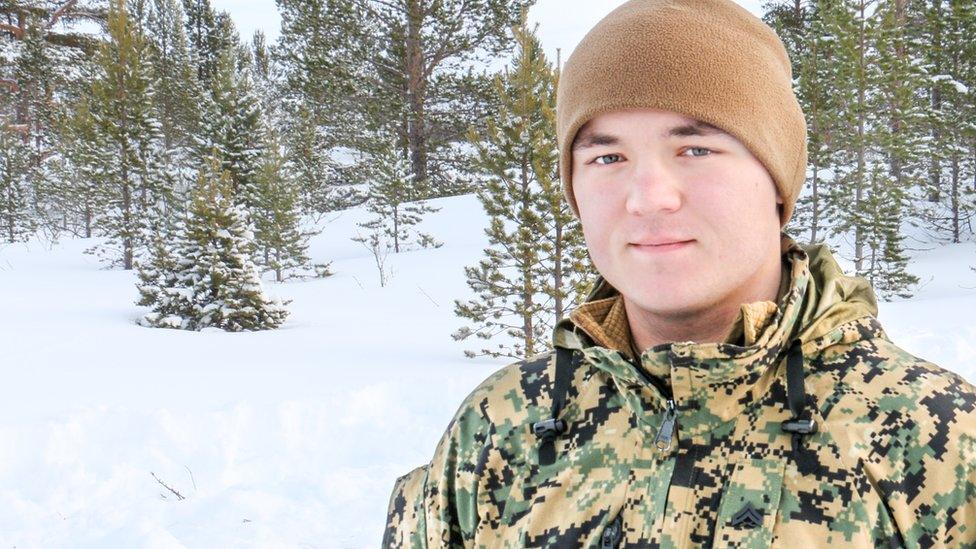
Stand still for too long out here and you can feel your fingers and toes almost hurt with the cold.
We are in a place called Porsangmoen, in the north of Norway.
After a whole day's travel involving three flights, we arrived at a large military base completely covered in snow.
Here, for the first time, Royal Marines are training US Marines how to survive and fight in the Arctic.
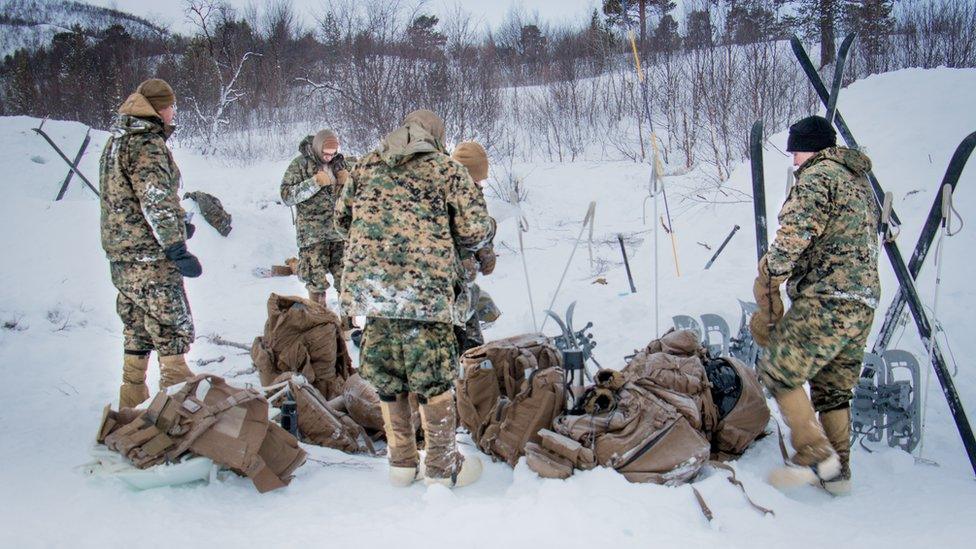
Surrounded by mountains, this military training area is the size of Belgium and sits 300 miles inside the Arctic Circle.
The training the US Marines are getting is part of a larger Nato exercise involving 15,000 troops.
Watch Royal Marines: Fighting in the Freezer on Newsbeat's YouTube channel. , external
For Corporal "Nate" Clark and most of his 200 colleagues in the US Marine Corps, it's been a shock to the system.
"I've never been in this kind of cold weather environment," he says.
"People have their motives to join the marines. I did it purely because my brother was in the marine corps. Watching him graduate was why I did it."
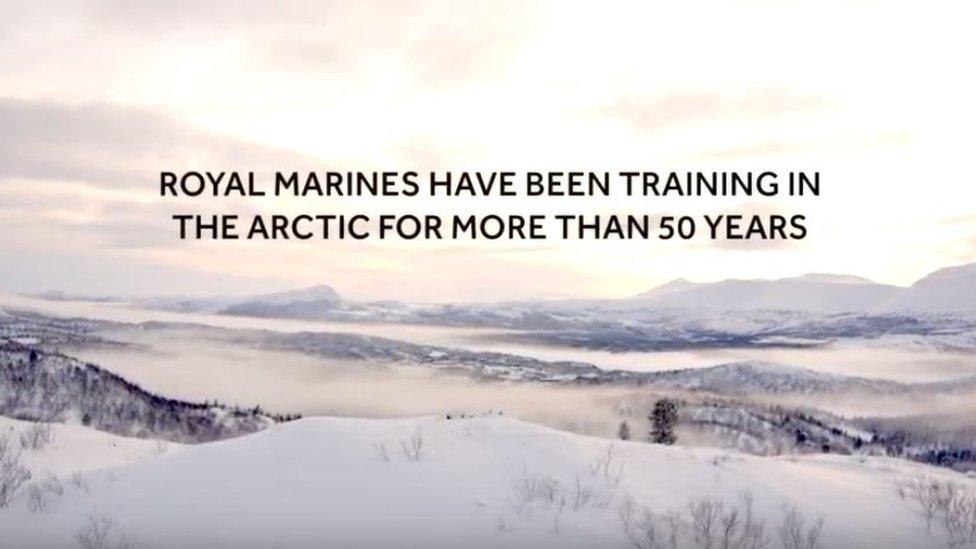
Nato - a military alliance of almost 30 Western countries - is concerned about growing Russian aggression in the region.
It's a hostile environment - the temperatures range from 0C all the way down to -30C.
The snow is really thick and soft, meaning it's difficult to get around unless you're in snow shoes or skis. Frostbite is always a possibility.
Watch Royal Marines: Fighting in the Freezer on iPlayer.
Corporal Mark Glass is also going through the training.
"I was working two jobs actually. I was working at a fast food restaurant and a factory," he explains.
"It was getting really stressful and tiring so I wanted to try something new.
"I was married, the reason I joined was because of my wife and somewhere along the line it ended. Now I'm here doing this and having a good time with it."
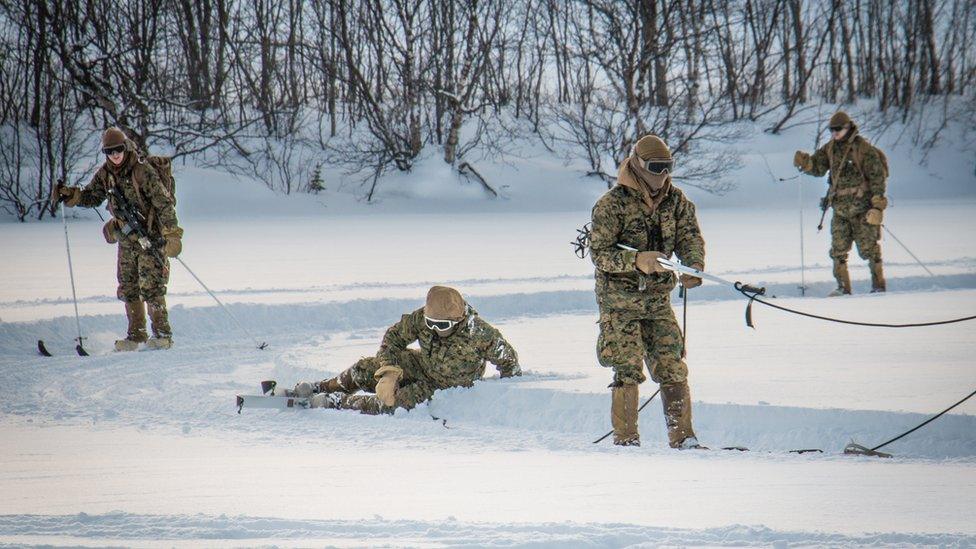
Part of their training involves the infamous "ice breaking" drill, which involves the marines jumping into a frozen lake.
They then have to pull themselves out of the water back onto the ice, roll in the snow before downing a shot of rum and getting into dry clothes inside a tent.
The rum is tradition, apparently.
"It was really cold. It's hard to talk and breathe when you're inside the water," says Mark.
Nate appeared to have a more enjoyable time.
"I was really nervous I didn't know what to expect. I was afraid I was going to get in there and not be able to get out. It was great I loved it," he says.
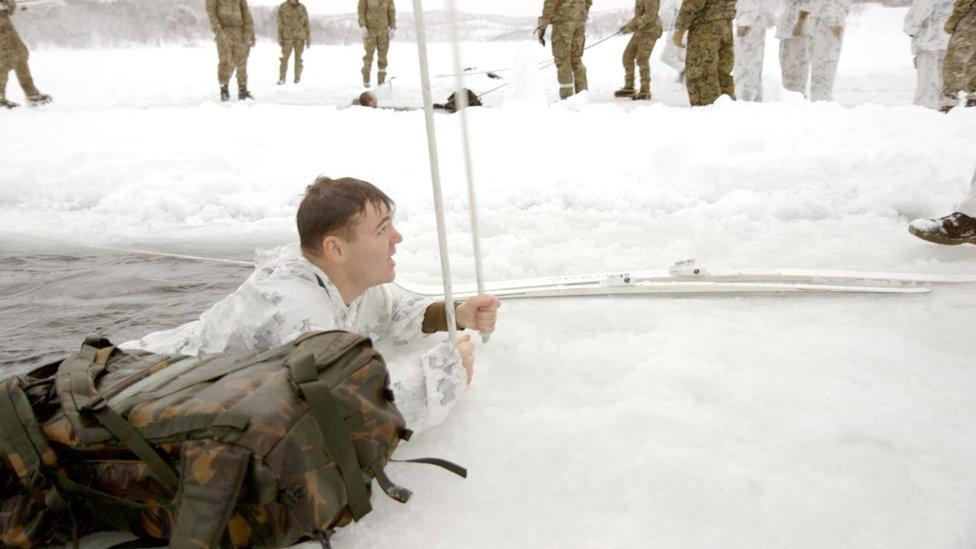
One of the main differences between the US and Royal Marines is size.
The Americans are more suited to operating in large numbers and this sometimes means they find it difficult to move quickly and effectively in the snow.
This was put to the test when they stayed out for two nights on exercise, where they had to sleep in snow shelters.
"We're piling up a bunch of snow and compacting it down. And after it settles we'll dig into it," explains Mark.
But what the Marines, including Nate, didn't bank on was having to dig for 12 hours in order to have a bed for the night.
"It's actually a long tedious exhausting project. We starting digging around 09:45 and we didn't stop digging until at least 17:00," he says.
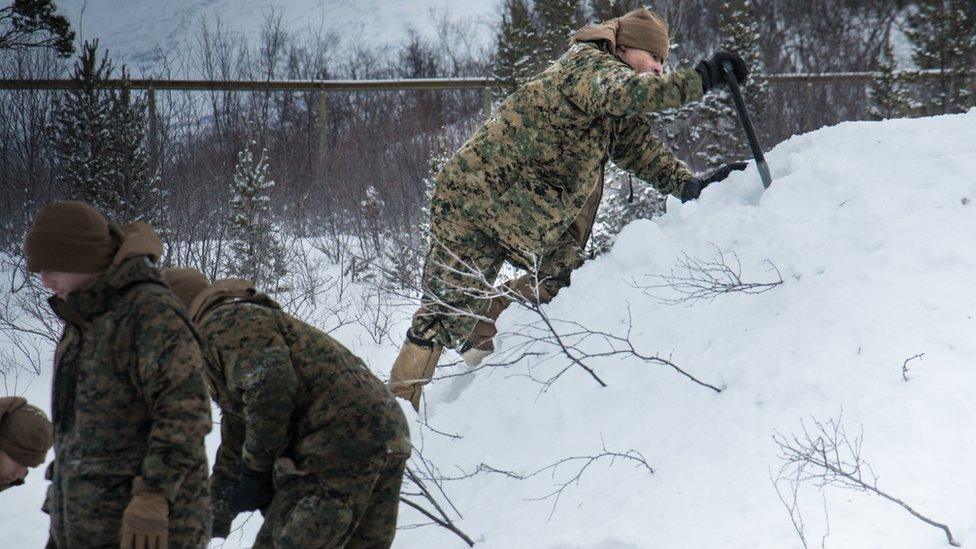
To make matters worse, it seems most of the US Marines had a terrible nights sleep, despite their shelters being a relatively toasty 0C.
It was -12C outside.
"It's supposed to be a shelter and keep us safe and warm, but it's still really cold," says Mark.
"Our clothes are still wet and cold and in some parts are frozen.
"I'm cold and hungry. It's been a real rough time these last couple of says. It's been a good time but also been a bad time, you just have to suck it and move on.
"Being fatigued and cold and tired and hungry, it's taken its toll."
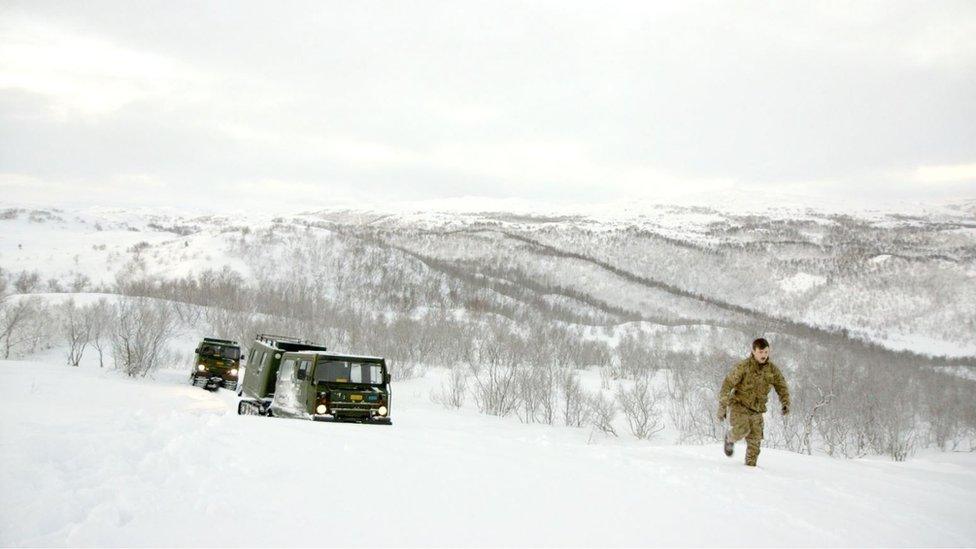
Because of the time of year, the sun only rises for a few hours a day, and barely gets above the horizon.
Despite the hostility of this environment, the surroundings are strikingly beautiful. Low lying clouds appear like a sea of cotton wall against snowy mountain tops.
The Royal Marines believe if you can fight here, you can fight anywhere.
For the US Marines the three weeks of training has been beneficial, but using their new skills against the Russians would be a very different, and unlikely prospect.
"We've made it a long way," says Mark.
"The royal marines have given us a lot of help on how to survive in this climate. It's a harsh climate, but with a little more practice we can do it."
Find us on Instagram at BBCNewsbeat, external and follow us on Snapchat, search for bbc_newsbeat